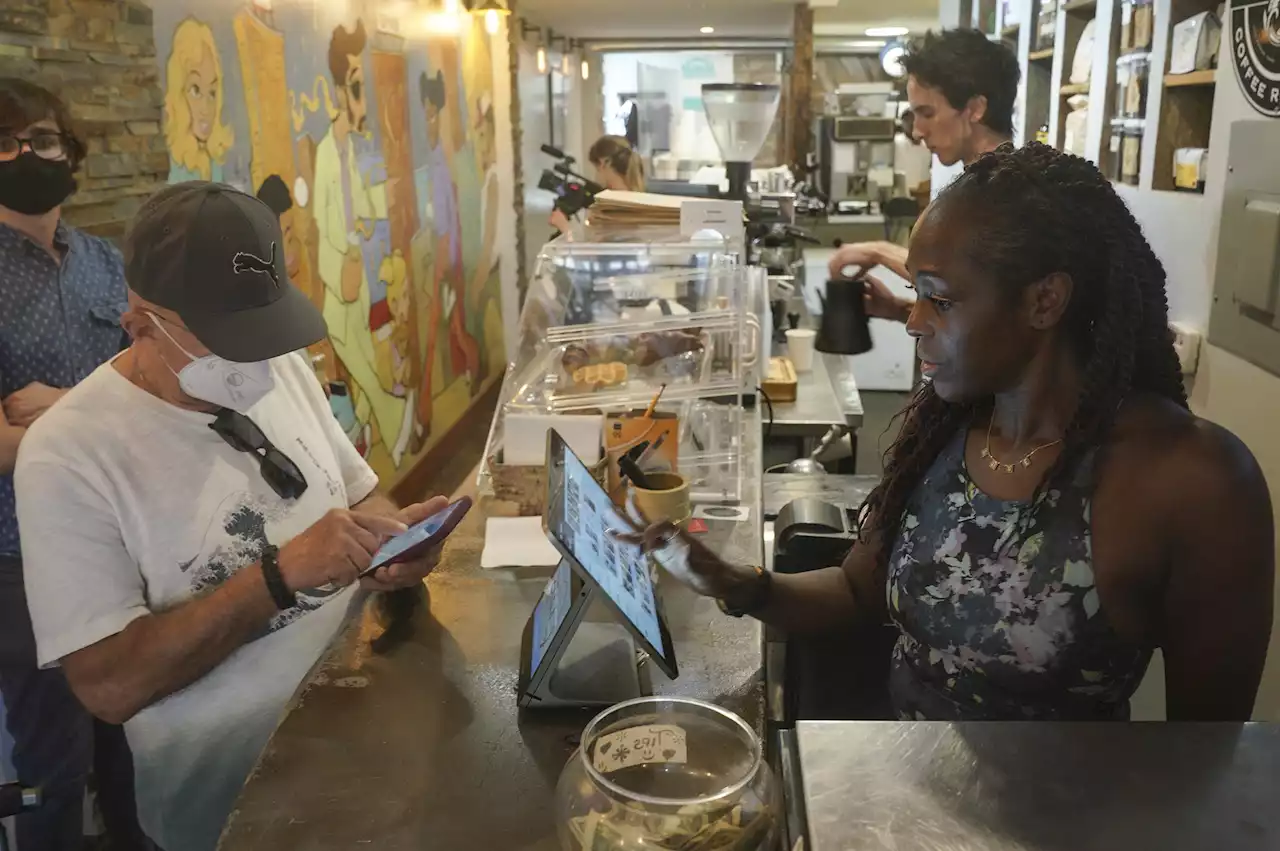Childhood poverty in the U.S. fell by almost half last year, according to Census Bureau data. The drop coincided with the expansion of the federal government’s child tax credit and the distribution of pandemic stimulus payments.
Kymme Williams-Davis, right, takes orders at the Bushwick Grind Café she owns, Thursday Sept. 8, 2022, in New York. Williams-Davis has noticed a definite shift in customer demand since she's had to raise prices and switch to different types of goods to keep up with inflation.
Income inequality in the U.S. increased last year for the first time in more than a decade, but childhood poverty was cut almost in half due to expansion of the federal government’s child tax credit and stimulus payments made in response to the COVID-19 pandemic, according to new survey results released Tuesday by the U.S. Census Bureau.
Declines in household income among the poorest U.S. residents appears to have driven the widening of the income inequality gap. Households in the 90th percentile of the income distribution, the richest, had income that was 13.5 times higher than households in the 10th percentile, the poorest. That was a 4.9% increase from 2020.
United States Latest News, United States Headlines
Similar News:You can also read news stories similar to this one that we have collected from other news sources.
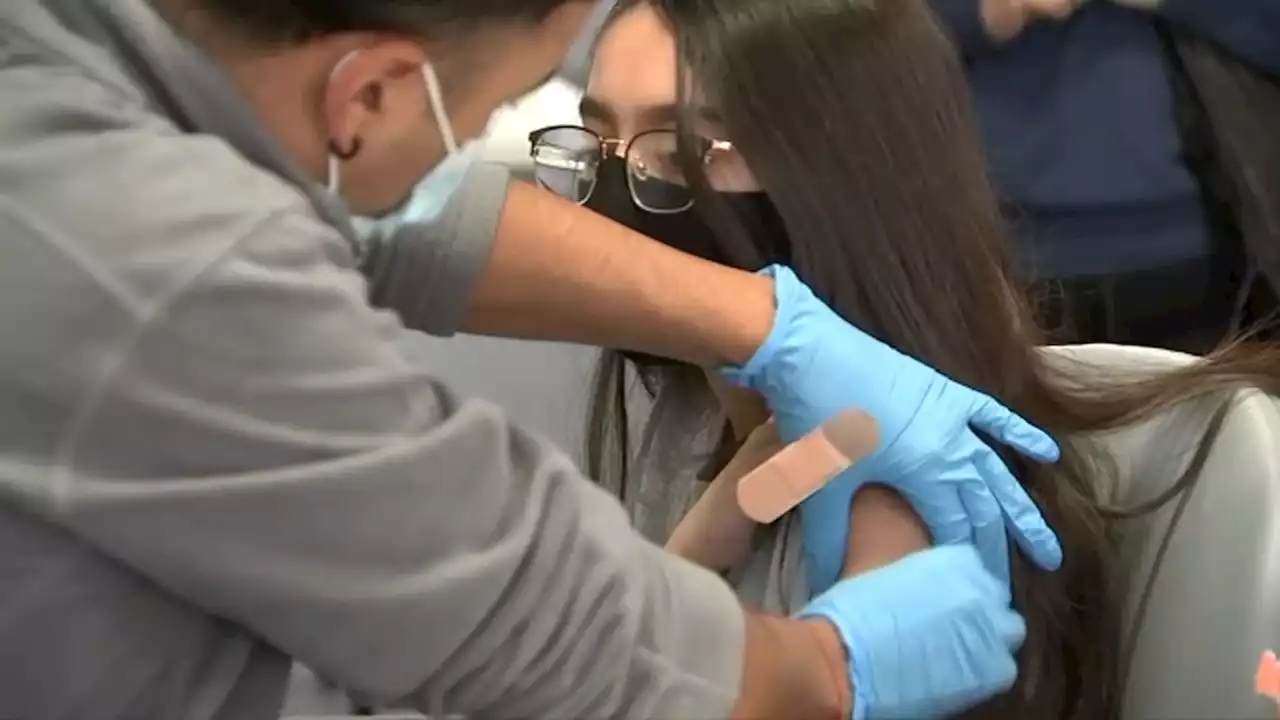 COVID update: Illinois reports 2,511 new cases, 18 new deathsIllinois reported 2,511 new COVID cases and 18 new deaths Tuesday.
COVID update: Illinois reports 2,511 new cases, 18 new deathsIllinois reported 2,511 new COVID cases and 18 new deaths Tuesday.
Read more »
 P-EBT, school lunch programs helped combat child hunger during COVIDIn Alabama, 13% of Alabama families with children told the Census Bureau that they either sometimes or often didn’t have enough food to eat, and an estimated 485,000 children benefited from the state’s most recent round of P-EBT payments.
P-EBT, school lunch programs helped combat child hunger during COVIDIn Alabama, 13% of Alabama families with children told the Census Bureau that they either sometimes or often didn’t have enough food to eat, and an estimated 485,000 children benefited from the state’s most recent round of P-EBT payments.
Read more »
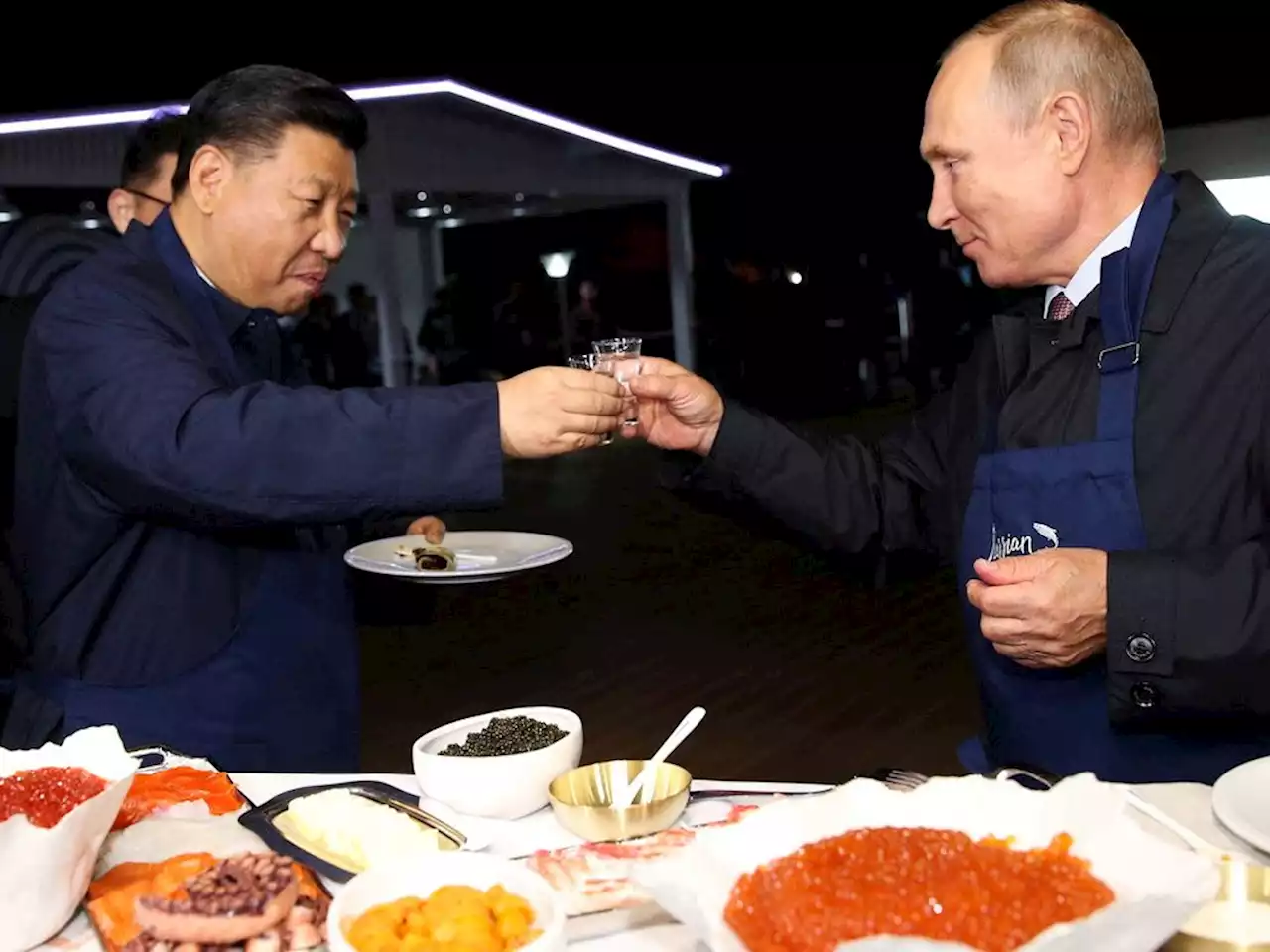 Xi to meet Putin in first trip outside China since COVID beganXi Jinping will leave China this week for the first time in more than two years for a trip to Central Asia where he will meet Vladimir Putin.
Xi to meet Putin in first trip outside China since COVID beganXi Jinping will leave China this week for the first time in more than two years for a trip to Central Asia where he will meet Vladimir Putin.
Read more »
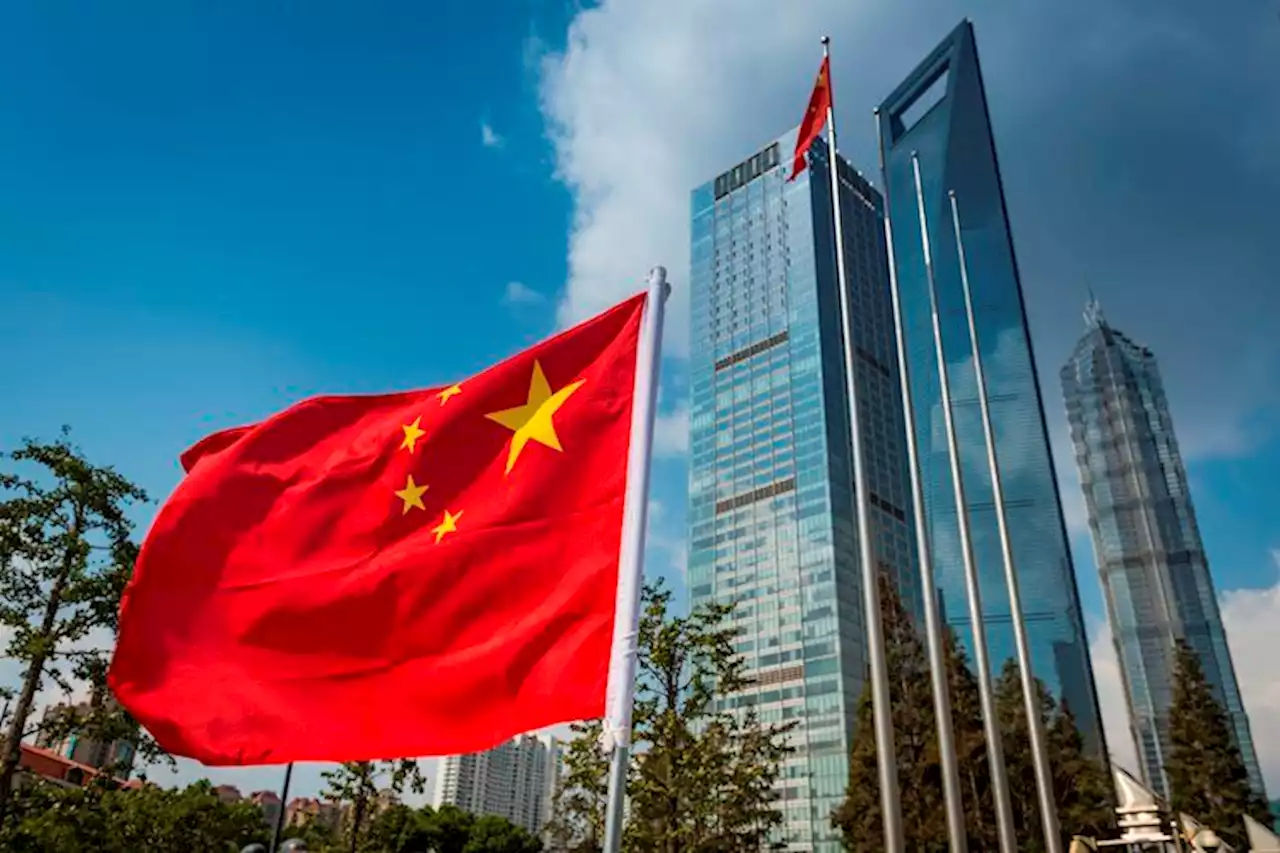 China oil demand may shrink first time since 2002 as covid curbs biteOil demand in China, the world's biggest energy consumer, could contract for the first time in two decades this year as Beijing's zero-COVID policy ke
China oil demand may shrink first time since 2002 as covid curbs biteOil demand in China, the world's biggest energy consumer, could contract for the first time in two decades this year as Beijing's zero-COVID policy ke
Read more »
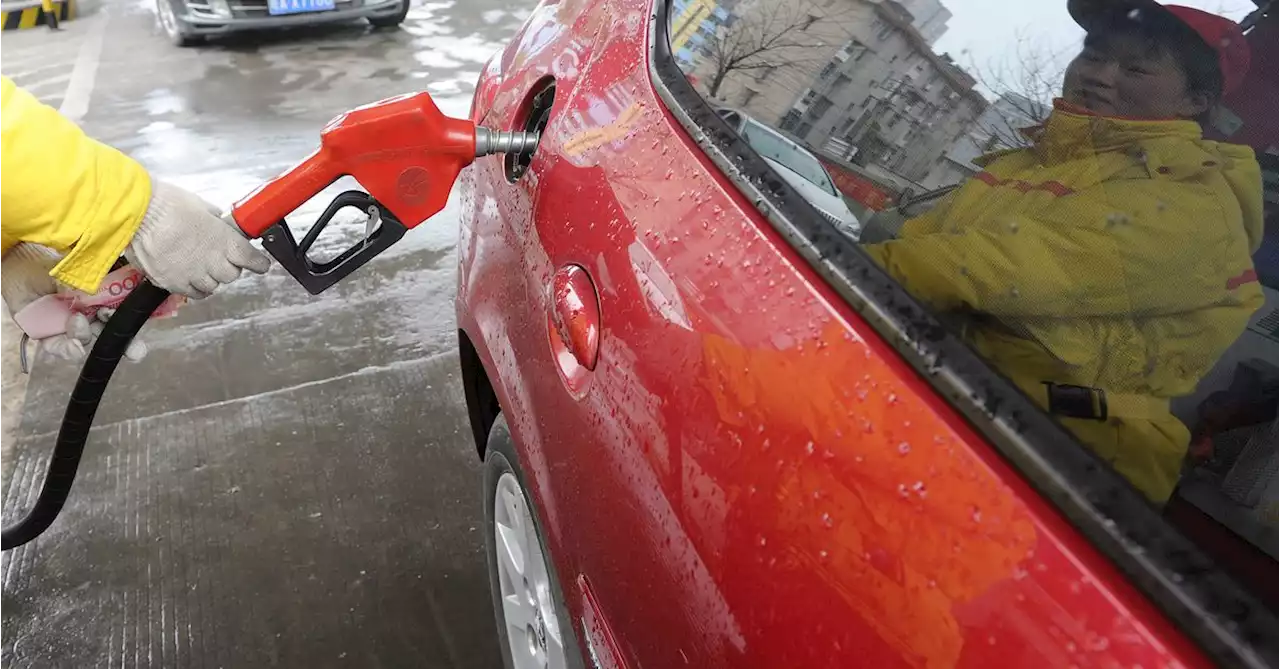 China oil demand may shrink first time since 2002 as COVID curbs biteOil demand in China, the world's biggest energy consumer, could contract for the first time in two decades this year as Beijing's zero-COVID policy keeps people at home during upcoming holidays and reduces fuel consumption.
China oil demand may shrink first time since 2002 as COVID curbs biteOil demand in China, the world's biggest energy consumer, could contract for the first time in two decades this year as Beijing's zero-COVID policy keeps people at home during upcoming holidays and reduces fuel consumption.
Read more »
